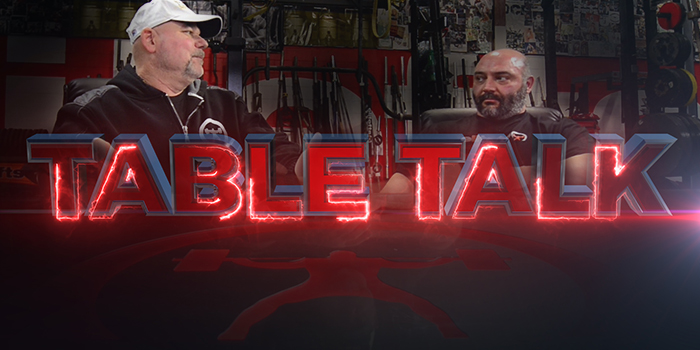
Is deloading necessary? And if so, how often should you do it? Should you reduce the weight? The number of sets? The number of reps? Change the movements you're doing? Simply take a week off? In today's Table Talk, Nate Harvey joins Dave to discuss deloading.
To begin, Dave points out that the problem with a deload isn't the concept of a deload, but how it is implemented. In other words, Dave isn't bothered by a deload — he's bothered by poor programming. Training for three weeks and then not doing anything at all for a week is bad programming.
Dave then goes into greater detail about programming, particularly within a conjugate system, which has progressions for max effort work, dynamic effort work, accessory work, and rehabilitation/health work. For this style of programming and most others, there are periods of time that training is reduced in terms of intensity, volume, frequency, or a combination of the three.
Dave also discusses the mental aspect of informing your clients or athletes that they are deloading. In many cases, if an athlete or client walks into the gym and sees "deload" on the schedule for the day, their motivation is reduced, their training preparedness is reduced, and as a result, they take the weight less seriously. What should've been 75% is now closer to 95% for the day. This doesn't function as a deload and it certainly doesn't help this person's training.
Nate responds by saying that, if frequent deloads feels necessary, you may need to take a step back and look at the bigger picture of both your training program and your life. If you constantly feel beat down, are always in need of a week for recovery, and small injuries keep popping up, the issue likely isn't about needing a deload and is more so a problem with your overall training scheme. He also suggests taking a look at your life. Are you constantly stressed out about something outside of training?
To finish the video, Dave speaks in detail about the adjustment of a training program from post-meet, off-season, and then training for a meet.










